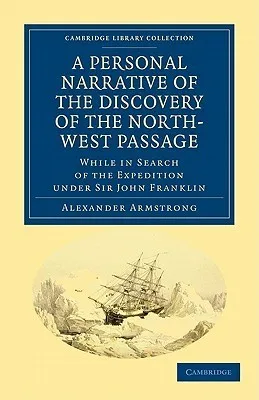A Personal Narrative of the Discovery of the North-West Passage
While in Search of the Expedition under Sir John Franklin
(Author) Alexander ArmstrongThe H.M.S. Investigator spent the years 1850-4 in the Western Arctic engaged in a search for the lost expedition of the explorer Sir John Franklin. In this 1857 publication Alexander Armstrong (1818-99), surgeon and naturalist to the ship, gives a first-hand account of life on board during the voyage, as testimony to the 'heroism, devotion, and endurance' of his shipmates. He describes the harsh conditions that the crew had to endure, and argues convincingly that no travel 'more thoroughly tests man's powers of endurance, both morally and physically' than travelling in the Arctic. He also notes that lemon juice proved the most effective remedy against scurvy. Armstrong's natural history research was cut short when the ship was abandoned and his collections left behind, but he includes an appendix listing the animals and birds observed on the voyage, and the Arctic plants collected by a friend and colleague.
Alexander Armstrong
Alexander Armstrong is a British actor, comedian, and TV presenter known for his work in television shows such as "Pointless" and "The Armstrong and Miller Show." He has also written several books, including the children's book series "The World of Walliams." Armstrong's writing style is humorous and engaging, often drawing on his experiences in comedy and entertainment. His contributions to literature include bringing laughter and entertainment to readers of all ages. One of his most famous works is "Pointless: The 100 Most Pointless Things in the World," which showcases his wit and comedic talent. Armstrong's impact on the literary genre of comedy and entertainment is significant, as he continues to delight audiences with his writing and performances.






